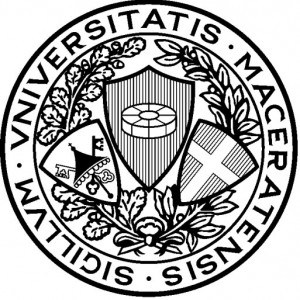Photos of university / #bruneluni
This is a multi-school, interdisciplinary programme that explores the likely impacts of global climate change on society and the wider environment and to instil the skills to develop creative and evidenced solutions.
Aims
We aim to provide students with an interdisciplinary knowledge of the potential impacts of global warming and climate change across a variety of key areas, including public health, business and economics, national and international policy and technological development, underpinned by a critical understanding of the concept of sustainability as applied to resource and energy use.
In so doing, we aim to meet the changing needs of society by generating graduates able to tackle the challenges presented by climate change, thus preparing them for careers that will likely span the transition to a post-carbon economy.
About the Institute for the Environment
During your MSc you will be based in the Institute for the Environment (IfE). IfE is a rapidly expanding research centre housing a strong team of leading experts held in high international regard in their respective fields. In 2011, IfE's research revealing the link between chemicals in rivers and reproductive health won the Queens Anniversary Prize for Higher and Further Education.
You can find out more about the Institute in our brochure.
Key features about Brunel and the Course
- Interdisciplinary course in award winning Specialist Research Institute
- Excellent staff to student ratio (around 1:4)
- CIWEM accredited course
- Full time (2-day contact a week) or part time (1-day contact a week)
- Campus university with excellent facilities and close to London with great transport links
Core Modules
The modules within this MSc have been specially designed to give you up-to-date knowledge and the necessary skills to be able to understand and act on climate change impact and sustainability issues in areas such as policy, law, health, energy and business. The specific modules are:
Global Climate Change (15 credits)
This module is fundamental to the programme as it introduces the background to the climate system, why it undergoes changes and how we measure and assess those changes. We also examine how humans have influenced the climate system and how it has affected humanity. Future projections are also considered in order to understand how Earths climate will change in the next few decades and out to 2100.
Sustainable Development in Practice (15 credits)
The key aim of this module is to develop the skills required to analyse, research and tackle sustainable development problems. This is achieved via a series of group projects that illustrate the complex interplay of environmental, societal and economic implications for a range of stakeholders in real sustainable development case studies. Developing the process of personal review, reflection and development is the second major aim of the module.
Responses to Climate Change (15 credits)
The aim of this module is to provide an integrated view of how societies can achieve greater levels of sustainability through legislative, voluntary and market-led initiatives. This will be achieved by evaluating economic activity through the triple-bottom-line, and exploring the ways that modern day corporate actors will need to adapt their activity to meet increasingly stringent targets to minimize future climate change.
Climate Change Policy and Law (15 credits)
The modules intellectual aims are to explore the development of environmental issues as problems of public policy since the 1960s, with particular reference to climate change; identify the challenges that climate change poses to the neoliberal paradigm; evaluate key strategies to combat climate change, such as the Kyoto Protocol and the EUs Emissions Trading Scheme; and critique proposals for a more radical response to climate change from the perspective of green theory.
Environmental Hazards and Risk (15 credits)
The aims of this module are to develop an understanding of: scientific uncertainty and the relationship between hazard and risk; how risk is perceived and how governments, industries and individuals assess risk in relation to natural, anthropogenic and occupational hazards in our environment and; how these risks may be influenced by global warming and climate change. This knowledge is essential when developing mitigation or adaptation strategies relating to climate change or sustainability.
Climate and Health (15 credits)
The impact on human health has to be one of the key considerations in climate change and sustainability analyses and mitigation or adaptation strategies. This module addresses this concern by developing a broad understanding of the variety of ways in which climate affects human health and by exploring the potential for public health interventions
Biosphere (15 credits)
The main aim of this module is to introduce the impact of human activities on our planet, especially the living component of our planet; the Biosphere. Humans are now the dominant species on the planet, and our activities are having far reaching consequences. These include impacts on photosynthetic production, increasing mean global temperatures, ocean acidification, altered atmospheric chemistry, altered reflectivity of the planet, freshwater quality, and species loss. Some of these global alterations made by humans may be approaching tipping points that some fear will destabilise whole Earth systems by eroding ecosystems and the services they provide and that we depend on to survive. This module will explore these issue within the context of the nine planetary boundaries outlined by Lynas is the landmark paper in Nature in 2009 ("A Safe Operating Space for Humanity"). These are (1) Biodiversity loss, (2) Global Warming, (3) Nitrogen Pollution, (4) Land Use, (5) Fresh Water Scarcity, (6) Ocean Acidification, (7) Ozone Depletion, (8) Chemical Pollution, (9) Atmospheric Aerosols.
Research and Critical Skills in Environmental Sciences (15 credits)
When considering environmental science careers in public or private sectors or academia, a good grounding in research skills and how to critically appraise sources of information is essential. This module develops those skills with both the dissertation and your career beyond Brunel in mind. We also cover transferable skills, employability and professional development within this module.
Dissertation (60 credits)
The dissertation can be viewed as the cornerstone of the programme. It is where you can take the knowledge and skills developed from the other modules and build a short research project in collaboration with your academic supervisor. Working on the dissertation project is often when our students realise just how much they have learnt and developed during the MSc programme.
Typical Dissertations
The dissertation is a key aspect of your studies and you need to know that we have the expertise to support your research project. Within the Institute for the Environment, and the wider Brunel community, we have world leading experts who can supervise you on the following example topics:
- Air pollution and public health
- Clean process technology and recycling
- Ecosystems and disease environments
- Ecotoxicology, chemicals in the environment, endocrine disruption and chemical safety assessment
- Environmental change, climate change, geological and hydrological hazards
- Water, waste and industrial wastewater treatment
- Climate modelling
- Palaeoclimatology
- Antarctic climate dynamics
- European thunderstorms
Recent dissertation titles
- Implications of changes in Arctic sea ice and the North Atlantic Oscillation for understanding the Caspian Sea level in the 20th and 21st Centuries
- A critical analysis of the scientific argument for climate change scepticism
- Demographic patterns indicate the onset of climate refugees from the coastal zone in Bangladesh
- Fuel Security - The Real Drive for Emission Reductions in the Aviation Sector?
- Climate change and resilience in the Arabian Peninsula water management strategies for the Gulf States
- Use of living walls and green roofs to reduce the air quality and greenhouse gas impact of Heathrow Airport
Lecturers
Course Director: Dr Andrew Russell
Want to improve your English level for admission?
Prepare for the program requirements with English Online by the British Council.
- ✔️ Flexible study schedule
- ✔️ Experienced teachers
- ✔️ Certificate upon completion
📘 Recommended for students with an IELTS level of 6.0 or below.
The Brunel International Scholarships
The Brunel International Scholarship Programme is an annual award run by the Brunel International office that is open to all international students. Its goal is to provide financial support to exceptional students. Scholarship holders will go on to represent Brunel as ambassadors throughout their time at the University. The deadline for applying for the 2014/15 programme is 25 May 2014 and all applicants will be notified of the panel's decision by the middle of July.
For 2014/15, thanks to the generosity of Brunels alumni and supporters, we are pleased to be able to offer 37 awards, which will comprise a15% discountonthe cost of tuition fees. These awards are open to Undergraduate, Postgraduate and Research students who are classed as overseas for fee purposes.
Accreditation
This MSc is accredited by The Chartered Institution of Water and Environmental Management (CIWEM)











